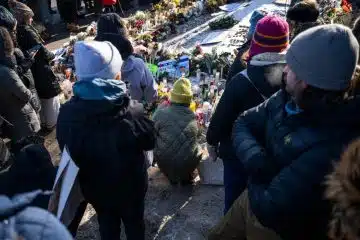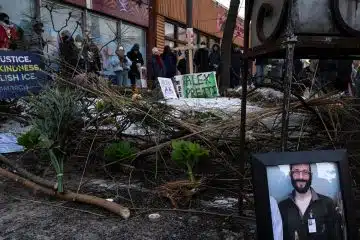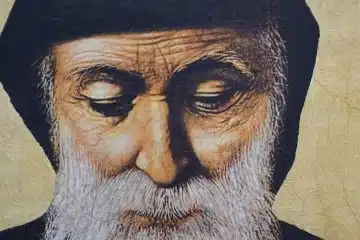Do Not Be Afraid
Three years ago, I was blessed with the opportunity to make a pilgrimage to the Holy Land. While in Bethlehem, I was deeply moved by a reflection on Luke’s Gospel. Standing in the fields where the shepherds once stood, I imagined myself alongside those shepherds, encountering the angels. As I journeyed to the Church of the Nativity, I joined the shepherds in proclaiming the need to “go now to Bethlehem and see this thing that has taken place, which the Lord has made known to us” (Lk 2:15).
Reflecting on that verse this Advent season, I can’t help but see how the shepherds’ journey mirrors that of women and men who seek healing after abortion. Their journey, too, is one that begins in fear and darkness but concludes in hope and light.
Abortion has deeply wounded the human family. Along with the profound loss of life, each child lost leaves behind parents suffering in the aftermath. A meta-analysis published in the British Journal of Psychiatry compared the mental health of women who carried their pregnancies to term with those, in similar circumstances, who had an abortion. It found that the women who had an abortion had an 81% higher likelihood of subsequent mental health problems overall, including a 37% increased risk of depression, 34% increased risk of anxiety disorder, 110% increased risk of alcohol abuse, and a 155% increased risk of suicidal behavior overall (Coleman 2011).
It is estimated that one in four women will have had an abortion in their lifetime (Guttmacher 2014). These women are in our families, churches, and communities, but often suffer in silence and isolation. Society tells them they should be proud of their abortion, while frequently silencing anyone who speaks about the pain it caused. And we in the Church can unintentionally deepen the feelings of loneliness and shame when, in rightly condemning the act of abortion, we use language and attitudes that further wound those suffering in its aftermath.
As a result, women and men who participated in abortion often carry this secret shame for years, some believing they will never find forgiveness and some believing they don’t even deserve it.
Yet, God’s mercy is for everyone. Just as the angels arrived in the shepherds’ field to announce the coming of Christ, so too does the Church, through Project Rachel, proclaim that Christ has come, not to condemn but to set free. Project Rachel begins with the angels’ invitation to “be not afraid” (Lk 2:10), offering a safe, confidential space where stories can be heard, sins forgiven, and wounds healed.
Project Rachel offers an integrated approach to healing that considers the whole person, from the spiritual and psychological to the emotional and communal. All these elements come together along the journey toward Christ and His light, which “darkness cannot overcome” (Jn 1:5).
One woman described her healing as slowly becoming aware of “exactly how much of God’s love I have been turning away.” She had always asked for God’s forgiveness in her life, but she wasn’t fully surrendering to Him. She kept one part of her soul hidden. Project Rachel helped her open that corner to God’s light, allowing her to experience true freedom and peace. “If God has forgiven me, who am I to do my will and not forgive myself?” she said.
Healing is not always linear, and it involves self-honesty, reconnecting with the child or children lost, forgiveness, reconciliation, and a commitment to live a new life with Christ. Project Rachel helps bring to light that which was hidden. It is a journey like that of the shepherds. As they sought the Christ child, so too do the parents who work with Project Rachel seek to reconnect with their own children through Christ. They come to hold vigil at their own version of His manger, a place where they can entrust their precious children to the mercy of God.
While certain sorrows can remain after forgiveness and healing, those made new in Christ know that they are no longer controlled by their sin or shame. By God’s grace through Project Rachel, they too walk “glorifying and praising God for all they had heard and seen” (Lk 2:20). ✣
Emily Branscum is the Associate Director of the Office for Respect Life Ministries in the Archdiocese of Cincinnati.
This article appeared in the December 2025 edition of The Catholic Telegraph Magazine. For your complimentary subscription, click here.















